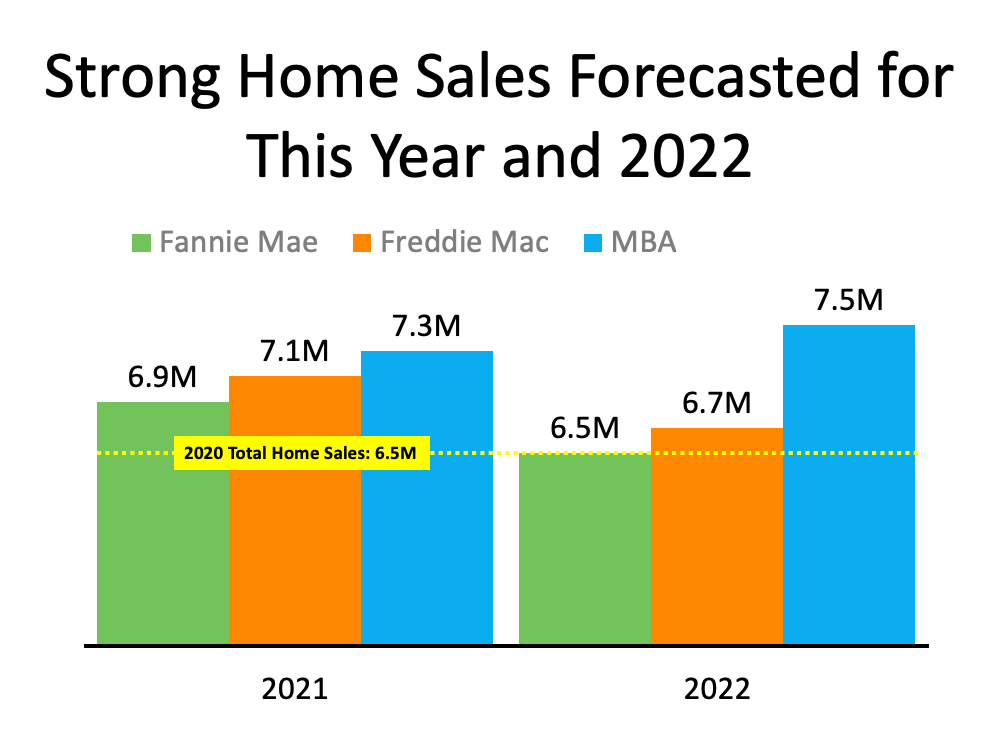Patience Is the Key to Buying a Home This Year
The question many homebuyers are facing this year is, Why is it so hard to find a house? Were in the ultimate sellers market, which means real estate is ultra-competitive for buyers right now. The National Association of Realtors (NAR) notes homes are getting an average of 4.8 offers per sale, and that number keeps rising. Why? Its because there are so few houses for sale.
Low inventory in the housing market isn't new, but its becoming more challenging to navigate. Danielle Hale, Chief Economist at realtor.com, explains:
The housing market is still relatively under supplied, and buyers cant buy what's not for sale. Relative to what we saw in 2017 to 2019, March 2021 was still roughly 117,000 new listings lower, adding to the pre-existing early-year gap of more than 200,000 fresh listings that would typically have come to market in January or February. Despite this weeks gain from a year ago, were 19 percent below the new seller activity that we saw in the same week in 2019.
While many homeowners paused their plans to sell during the height of the pandemic, this isn't the main cause of todays huge gap between supply and demand. Sam Khater, Vice President and Chief Economist at Freddie Mac, Economic Housing and Research Division, shares:
The main driver of the housing shortfall has been the long-term decline in the construction of single-family homes . . . That decline has resulted in the decrease in supply of entry-level single-family homes or, starter homes.
When you consider the number of homes built in the U.S. by decade, the serious lack of new construction is clear (See graph below): The number of newly built homes is disproportionately lower than the rate of household formation, which, according to the U.S. Census Bureau, has continued to increase. Khater also explains:
The number of newly built homes is disproportionately lower than the rate of household formation, which, according to the U.S. Census Bureau, has continued to increase. Khater also explains:
Even before the COVID-19 pandemic and current recession, the housing market was facing a substantial supply shortage and that deficit has grown. In 2018, we estimated that there was a housing supply shortage of approximately 2.5 million units, meaning that the U.S. economy was about 2.5 million units below what was needed to match long-term demand. Using the same methodology, we estimate that the housing shortage increased to 3.8 million units by the end of 2020. A continued increase in a housing shortage is extremely unusual; typically in a recession, housing demand declines and supply rises, causing inventory to rise above the long-term trend.
To catch up to current demand, Freddie Mac estimates we need to build almost four million homes. The good news is builders are working hard to get us there. The U.S. Census Bureau also states:
Privately-owned housing units authorized by building permits in March were at a seasonally adjusted annual rate of 1,766,000. This is 2.7 percent (1.7 percent) above the revised February rate of 1,720,000 . . . Privately-owned housing starts in March were at a seasonally adjusted annual rate of 1,739,000. This is 19.4 percent (13.7 percent) above the revised February estimate of 1,457,000. . . .
What does this mean? Lawrence Yun, Chief Economist at NAR, clarifies:
The March figure of 1.74 million housing starts is the highest in 14 years. Both single-family units and multifamily units ramped up. After 13 straight years of underproduction the chief cause for todays inventory shortage this construction boom needs to last for at least three years to make up for the part shortfall. As trade-up buyers purchase newly constructed homes, their prior homes will show up in MLSs, and hence, more choices for consumers. Housing starts to housing completion could be 4 to 8 months, so be patient with the improvement to inventory. In the meantime, construction workers deserve cheers.
Bottom Line
If you're planning to buy this year, the key to success will be patience, given todays low inventory environment. Lets connect today to talk more about what's happening in our area.
Note: The original version of this blog included a graph showing total number of housing units built, which included houses and apartment units. The revised graph, shown here, includes only single-family homes, which more accurately explains the current situation.












